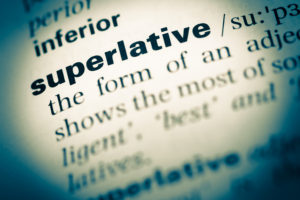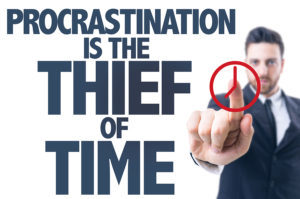Lin Wilder's Blog, page 44
November 12, 2017
A Life of One’s Own
Sound familiar? A Life of One’s Own? Maybe you’re thinking of Virginia Wolf’s A Room of One’s Own, as was I until I learned more about a book published in the 1930’s. I’d never heard of Marion Milner, a British psychoanalyst and writer who embarked on a seven year experiment in living. One aimed at “unpeeling […]
The post A Life of One’s Own appeared first on Lin Wilder.
November 5, 2017
Echoes of Eden: Origin of the Gender Wars and A Novel Called Havah
Ever heard the echoes of Eden? That place of perfection where peace reigns? Not actually sounds, more like the absence of them. As if you are one with the universe, suddenly all things feel connected to everything else. A complete whole with you exactly where you should be. During the many years I lived […]
The post Echoes of Eden: Origin of the Gender Wars and A Novel Called Havah appeared first on Lin Wilder.
October 29, 2017
Writing- Why Do We Do It?
Writing- why do we do it? The first draft of my fourth novel is done. And is now with the editor. I have time now, time I’ve not had for many months. A break until the work of revisions begins again. Reflecting about writing- why do we do it? works for this week’s post because […]
The post Writing- Why Do We Do It? appeared first on Lin Wilder.
October 21, 2017
Our Culture of Superlatives: Do Our Words Matter?

Culture of superlatives
Culture of superlatives: What does that mean, exactly? Recently, I’ve become aware of my tendency to use them both in my writing and in speaking. Consequently, I’ve been thinking a lot about word selection, both mine and that of others.
The fourth in the Lindsey McCall medical mystery series, Malthus Revisited: The Cup of Wrath is done. And is currently being read and edited by five, soon to be six people. Always a humbling and often tedious process. No longer a novice at writing fiction, I’ve learned to reign in my use of unnecessary words, often, but not always, adjectives. But they jump out to a careful reader like my husband John.
Which leads to the second part of the thought, ‘do our words matter?’
A few months ago, I decided to stop using the word awesome. Mostly because I was using it without thinking. Applying a word meaning inspiration of an overwhelming reverence, admiration or fear to a good meal or movie feels trite, even disrespectful. But it’s become habit, has snuck unbidden into my thoughts. Therefore, out my mouth.
Many years ago, nearing my graduation from college, the head of the English Department at the college and I were talking about communication. I had expected that the degree in English would confer automatically, effective communication- with anyone. Dismayed at the fallacy of my hope, I’d gone to speak with her. I had learned the ease with which my words could be misunderstood, even used against me.
Sister Marie Bernard remains, all these years later, the quintessence of an educator.
Her thoughts and viewpoints far beyond her time, Sr. Marie Bernard was fascinated by the power of the vernacular upon those who lived and spoke it. And her admonitions to her students were simple and practical: while the meaning of a word may be clear and precise to you as a writer or a speaker, understand always, there are those in the listening or reading audience to whom the meaning of that word may be something else entirely.
So many years later, I remember gratefully the time I spent with her. Lessons taught by a woman who belied her stiff, starched black and white appearance of her Dominican habit. Instead, she took real delight in understanding the nuances of language adopted by people living in a particular time and place. She understood that language is alive, constantly changing. And yet, insisted on precise, careful writing from her English major students. Always the paradox.
Awesome.
The post Our Culture of Superlatives: Do Our Words Matter? appeared first on Lin Wilder.
October 15, 2017
Kill the Monster: The Paradox of Completion
 Kill the monster:The paradox of completion
Kill the monster:The paradox of completionFinishing anything always involves paradox.
Okay, but kill the monster?
A strange phrase to use when completing a long project- one that has taken a year to finish…like a book.
Or is it? I’m a writer but the paradox is not limited to writing; instead, it applies to all big, long-term projects. Graduating from college, achieving a long sought after goal, like a promotion, raise, or public recognition of your specific talent; that strange paradox exists in each and every one.
I return to Winston Churchhill’s words each time one of the books is done. His phrasing, so appropriately and splendidly describes these paradoxical feelings:
Writing a book is an adventure. To begin with it is a toy and an amusement. Then it becomes a mistress, then it becomes a master, then it becomes a tyrant. The last phase is that just as you are about to be reconciled to your servitude, you kill the monster and fling him to the public.
We forget. At least I do, that the joy is in the adventure. Always. Never in the finish. Always the paradox. One which I need to revisit each time, one would think we’d remember but we don’t. Which, of course begs the question, why is that exactly?
The answer lies in Churchill’s first sentence and last phase, “….an adventure…just as you are about to be reconciled to your servitude, you kill the monster and fling it to the public.”
A new book -or new anything- is an adventure. All that the word entails is contained: Excitement, terror, anticipation, unknown and more. Speaking the goal out loud alters, ever so slightly, the world around us: Something new is being created.
Along the journey to completion, unexpected obstacles appear. Sometimes they appear immense. Doubt creeps in…those voices, “Why did I ever start this?” “I should have known I could never get it done!” We think it’s our imagination but it has a name.
Resistance .
Resistance is the most toxic force on the planet. It is the root of more unhappiness than poverty, disease and erectile dysfunction. To yield to Resistance deforms our spirit. It stunts us and makes us less than we are and were born to be. If you believe in God (and I do) you must declare Resistance evil, for it prevents us from achieving the life God intended when He endowed each of us with our own unique genius. Genius is a Latin word; the Romans used it to denote an inner spirit, holy and inviolable, which watches over us, guiding us to our calling.. A writer writes with his genius; an artist paints with hers; everyone who creates operates from this sacramental center. It is our soul’s seat, the vessel that holds our being-in-potential, our star’s beacon and Polaris.
What causes it? In my world, it’s fear. One of the many reasons that I write fiction is to explore the interplay of good and evil. In the world and in my characters. The antagonist in Malthus Revisited: The Cup of Wrath, is evil. How does someone become possessed by such hatred that he desires the annihilation of humanity?
And then…Suddenly it’s over. You did it…created something brand new.
Now What?
The post Kill the Monster: The Paradox of Completion appeared first on Lin Wilder.




















October 8, 2017
So You Are A Logical Thinker? Really?
 Logical thinker
Logical thinkerBet you pride yourself on being a logical thinker. Most of do.
We’ve been schooled in Descarte’s Cogito Ergo Sum- I think therefore I am. The same Descartes who performed autopsies on live dogs, the euphemism vivisection sounds far more rational, doesn’t it? He claimed that their screams were merely neurological responses by non-rational organisms who could feel no pain.
Remarkable, isn’t it? The power we cede others to shape our view of reality and our world? Don’t be too hard on Renee however, after all, he lived during the phase of human development called the Enlightenment. The dawn of man’s self-deification.
Descartes would be stunned to learn the truth about the animals he tortured, if he were capable of accepting the breadth of his ignorance and cruelty.
Years ago, while working on my doctorate, I became intrigued by decision making. I worked in academic medicine, with physicians who were ostensibly the at the top of the heap of rationality and should be the quintessence of reason. My experience with physicians was different; they were a group who appeared no more, at times far less reasonable than non-physicians. And frequently, their decisions were based on emotion rather than data.
The administrators whom I worked for were the same, driven more by emotion than by the data we all drowned in. Therefore, when my dissertation advisor found the Nobel Prize winning Garbage Can Model of Decision-Making, I was ecstatic. The researchers confirmed my increasing suspicion that the notion of even the most highly educated of us rely on reason for our decisions was bogus.
During the years of study and later the writing of my dissertation, I came across one of the major current voices in decision theory: 83 year old Israeli psychologist Daniel Kahnaman. When you spend hours and hours with minds like his, they become friends. And when I see him interviewed by Krista Tippett, I smile at his responses to her questions. Wisdom, there’s no substitute for it, is there?
Mr. Kahneman: It is not, because you do not appear rational to them. And the fact that arguments that feel irrefutable come to our mind so easily doesn’t mean that those arguments are the real cause of our beliefs and doesn’t mean much of anything about the validity of the argument. The way that the mind works, very frequently, is that we start from a decision, or we start from a belief, and then the stories that explain it come to our mind. And the sequence that we have when we think about thinking, that arguments come first and conclusions come later, that sequence is often reversed. Conclusions come first, and rationalizations come later.
Ms. Tippett: But isn’t it interesting that the discipline — or, at least, the idealized discipline of politics or political science, the way we think you have a debate, and then, somehow, the best idea will appear right to everyone [laughs] — and that’s not, in fact, the way — as you’re saying, that’s not even the way our brains work.
Mr. Kahneman: Absolutely. I mean certainly, what is happening in the United States in the last six months is — it’s really a testimony to that sort of process. You have people on the left, probably — possibly the majority of the country, certainly the people that Donald Trump calls “elites” — and they cannot believe what they see in the polls every week, which is that behaviors that appear to them to be crazy have absolutely no effect on the popularity of the president among a group of his supporters. You read The New York Times, and you feel that everybody who writes there cannot make their peace with the fact that the support is stable, in spite of things that strike them as —
Ms. Tippett: Right, that’s what I mean — they’re always surprised by the same thing, over and over and over again, shocked.
Mr. Kahneman: Absolutely. “Why don’t they change their mind?” And the reason they don’t change their mind is that facts don’t matter, or they matter much less than people think. And people on both sides believe that there are facts that support them. But those beliefs should not be taken too seriously.
The post So You Are A Logical Thinker? Really? appeared first on Lin Wilder.









































